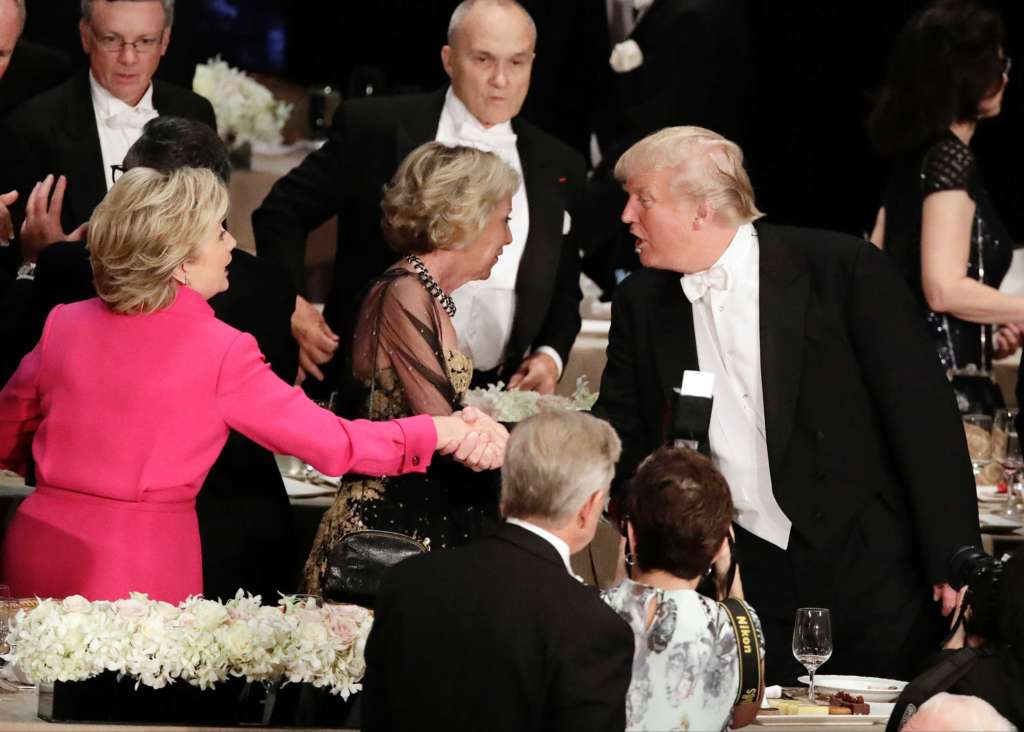Washington – Everyone knows that elections around the world are manipulated by money and interests, and that the spending capacity of any candidate is the main factor that leads his electoral campaign toward victory. The U.S. presidential elections significantly depend on the candidate’s charisma in attracting funds, whether they came from individuals or large companies.
Statistics show that the Democratic candidate Hillary Clinton has succeeded in collecting USD1.14 billion for her campaign till the end of September through a network of contributors who support her or her husband, the former U.S. President Hillary Clinton.
On the other side, the Republican candidate Donald Trump has bragged about his independence, saying that he spends on his electoral campaign from his own fortune and he doesn’t need the financial support of pressure groups. However, in May, he launched fundraising efforts and succeeded in collecting USD712 millions, including 56 millions from his own fortune. According to Wall Street Journal, 12 U.S billionaires have allocated around USD88 million to electoral campaigns in 2016 and that Hillary Clinton has been the biggest beneficiary from fund flows; 83% of funds served in Clinton’s campaign while 17% served Trump.
Trump received USD20 million from The National Rifle Association of America (NRA), one of the pressure groups that promote weapons ownership according to the second article of the U.S. constitution; it is worth noting that NRA includes many businessmen and members from the Congress.
A group known as “Future 45” allocated USD13 million to be spent on criticizing Clinton’s campaign; its promotions were released in conscious states. Trumps’ campaign was remarkably supported by the Billionaire Sheldon Adelson, owner of the biggest casinos in Las Vegas, who funded anti-Clinton promotions with USD10 millions.
In spite that the Republican candidate’s campaign didn’t receive major funding compared to Clinton, analysts see that Trump enjoys a charisma that offers him a free promotion through media outlets, in addition to his dependency on his wealth and some supporters’ funding.
While Trump didn’t make efforts to attract super-pack billionaires and companies, Clinton has been flattering those since spring 2015; the strategy she has adopted in fundraising her campaign has targeted money from businessmen, wealthy people, and big companies, which support the Clinton family.
Clinton has rooted this network of supporters over the past 40 years, according to U.S. media reports, she has also accepted funds from pressure groups that represent foreign governments and took advantage from a legal gap that facilitates cooperation between her campaign and these pressure groups.
The Washington Post newspaper reported that the five-million-dollar sum received by Clinton’s campaign was gathered from funds of 100 wealthy businessmen and labor syndicates supported by the Clinton family. In the seventies, regulations that organized electoral campaigns imposed restrictions on funds’ values and contributions to avoid the domination of political money, yet, these regulations have changed in 2010 amid pressures of super-pack companies and syndicates to allow candidates to benefit from unlimited sums provided by individuals and companies; the Supreme U.S. Court has also ratified on opening the door for funds flow during the national elections.
Many billionaires fund Clinton’s campaign including William Susman, who brags about supporting the Democrats candidate and believes that only a figure like Clinton can save the United States from the crisis it suffers from.
Fundraising doesn’t only depend on wealthy people and companies, a remarkable share of contributions comes from local citizens who pay modest sums.
A financial official in Clinton’s campaign has revealed that more than 2.6 million U.S. citizens have funded the Democrats’ campaign because they believe in the candidate’s efforts in improving the economic status of the U.S. community.
